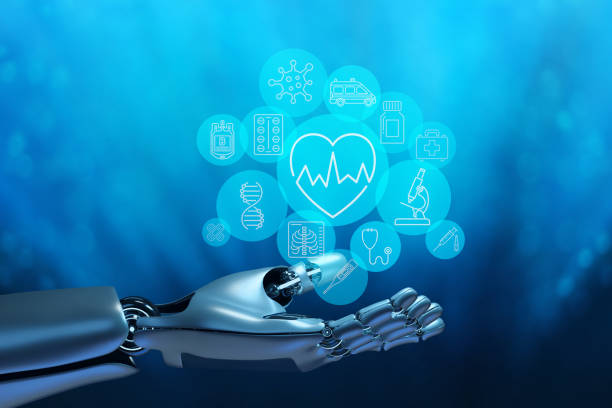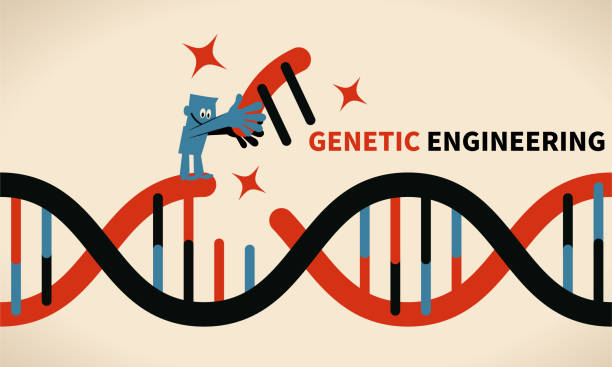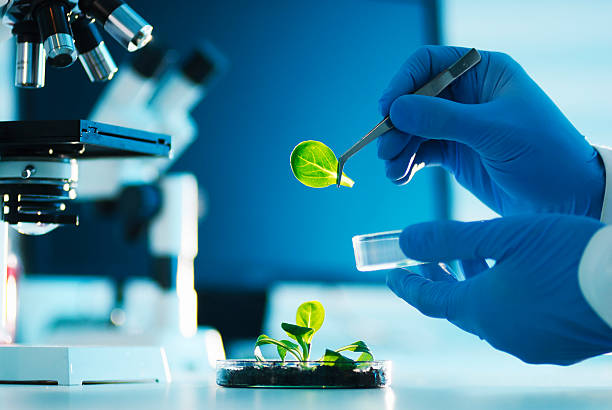Biotechnology and genomics are at the forefront of scientific innovation, driving transformative changes in medicine, agriculture, and various other fields. By harnessing the power of biological systems and genetic information, these disciplines are revolutionizing our approach to health, disease treatment, and understanding the fundamental principles of life. This article explores the core concepts of biotechnology and genomics, their applications, advancements, and the challenges they face.

Understanding Biotechnology
Biotechnology is the application of biological systems, organisms, or derivatives to develop or create products and technologies for specific uses. It encompasses a range of techniques and tools used to manipulate biological systems for practical purposes. Key areas of biotechnology include:
- Genetic Engineering: Genetic engineering involves the modification of an organism’s DNA to achieve desired traits or produce specific proteins. Techniques such as CRISPR-Cas9 allow precise editing of the genome, enabling researchers to correct genetic defects, enhance crop traits, or produce therapeutic proteins.
- Biopharmaceuticals: Biotechnology has enabled the development of biopharmaceuticals, which are drugs derived from biological sources. These include monoclonal antibodies, vaccines, and gene therapies that target specific diseases or conditions.
- Agricultural Biotechnology: Agricultural biotechnology involves the use of genetic modification and molecular biology techniques to enhance crop yield, resistance to pests, and nutritional value. Genetically modified organisms (GMOs) play a significant role in modern agriculture.
- Industrial Biotechnology: Industrial biotechnology uses biological processes and organisms to produce chemicals, materials, and energy. This includes the production of biofuels, biodegradable plastics, and enzymes used in various industrial processes.
- Environmental Biotechnology: Environmental biotechnology focuses on using biological processes to address environmental issues, such as bioremediation to clean up pollutants or using microorganisms to treat wastewater.
Understanding Genomics
Genomics is the study of the genome, the complete set of genetic material within an organism. It involves analyzing and interpreting genetic sequences to understand gene functions, genetic variation, and their impact on health and disease. Key areas of genomics include:
- Genome Sequencing: Genome sequencing involves determining the complete DNA sequence of an organism’s genome. Technologies such as next-generation sequencing (NGS) have made it possible to sequence genomes quickly and affordably, providing insights into genetic variations and their implications.
- Genomic Medicine: Genomic medicine applies genomic information to diagnose, treat, and prevent diseases. Personalized medicine, which tailors treatments based on an individual’s genetic profile, is a growing area within genomic medicine.
- Functional Genomics: Functional genomics aims to understand the function of genes and their products. Techniques such as gene expression profiling and RNA sequencing help researchers identify how genes are regulated and how they contribute to biological processes.
- Comparative Genomics: Comparative genomics involves comparing the genomes of different species to understand evolutionary relationships, gene function, and genetic variation. This approach helps identify conserved genes and genetic elements across species.
- Epigenomics: Epigenomics studies changes in gene expression that do not involve alterations in the DNA sequence. Epigenetic modifications, such as DNA methylation and histone modification, play a role in regulating gene activity and can be influenced by environmental factors.

Applications of Biotechnology and Genomics
- Medical Diagnostics:
- Genetic Testing: Genetic testing can identify genetic predispositions to diseases, such as cancer or cardiovascular conditions. This enables early diagnosis and personalized treatment plans.
- Biomarkers: Biotechnology and genomics are used to identify biomarkers that indicate the presence or progression of diseases. Biomarkers can guide treatment decisions and monitor therapeutic responses.
- Drug Development:
- Targeted Therapies: Genomic information helps identify genetic targets for drug development, leading to the creation of targeted therapies that address specific molecular mechanisms underlying diseases.
- Biologics: Biopharmaceuticals, including monoclonal antibodies and gene therapies, are developed using biotechnology to treat complex diseases such as cancer, autoimmune disorders, and genetic conditions.
- Agriculture:
- GM Crops: Genetic modification enhances crop traits, such as resistance to pests, diseases, and environmental stresses. GM crops can improve yield, nutritional content, and sustainability.
- Precision Agriculture: Genomic data is used in precision agriculture to optimize crop management practices based on genetic information, leading to more efficient use of resources and improved crop productivity.
- Environmental Conservation:
- Bioremediation: Biotechnology is used to clean up contaminated environments through bioremediation, where microorganisms or enzymes degrade pollutants in soil and water.
- Conservation Genetics: Genomics helps in conservation efforts by assessing genetic diversity within species, guiding breeding programs, and monitoring population health.
- Forensic Science:
- DNA Profiling: DNA profiling uses genetic information to identify individuals or establish biological relationships. It is widely used in forensic investigations, paternity testing, and identifying missing persons.
Challenges in Biotechnology and Genomics
- Ethical Considerations: The use of biotechnology and genomics raises ethical questions related to genetic modification, privacy, and the potential for genetic discrimination. Ethical frameworks and regulations are needed to address these concerns.
- Data Privacy: The collection and analysis of genetic data involve sensitive information that must be protected from unauthorized access and misuse. Ensuring data privacy and security is crucial for maintaining public trust.
- Cost and Accessibility: While advancements in biotechnology and genomics offer significant benefits, the costs associated with sequencing technologies, genetic testing, and personalized medicine can be prohibitive. Making these technologies accessible and affordable is a challenge.
- Regulatory Issues: The rapid pace of innovation in biotechnology and genomics often outpaces regulatory frameworks. Developing and implementing appropriate regulations to ensure safety, efficacy, and ethical use of these technologies is essential.
- Technical Limitations: Despite advances in sequencing and analysis technologies, challenges remain in interpreting complex genetic data, understanding gene-environment interactions, and translating genomic information into clinical applications.

Future Trends in Biotechnology and Genomics
- Advancements in Sequencing Technologies: Continued advancements in sequencing technologies will enable more accurate and cost-effective genomic analysis, facilitating further discoveries and applications in medicine and research.
- Personalized Medicine: The integration of genomic data into healthcare will drive the development of personalized medicine, allowing for tailored treatments based on individual genetic profiles and improving patient outcomes.
- Synthetic Biology: Synthetic biology combines principles of biotechnology and genomics to design and construct new biological systems and organisms. This field holds promise for creating novel applications in medicine, agriculture, and industry.
- CRISPR and Gene Editing: The CRISPR-Cas9 technology and other gene-editing tools will continue to evolve, offering new opportunities for precise genetic modifications and therapeutic interventions.
- Integrative Omics: Combining genomics with other omics fields, such as proteomics and metabolomics, will provide a more comprehensive understanding of biological systems and disease mechanisms, leading to more effective interventions and treatments.
Conclusion
Biotechnology and genomics are driving unprecedented advancements in science and medicine, offering new possibilities for understanding and addressing complex biological challenges. From revolutionizing drug development and personalized medicine to enhancing agricultural practices and environmental conservation, these fields are reshaping the future. As technology continues to evolve, addressing ethical, privacy, and regulatory challenges will be crucial for maximizing the benefits of biotechnology and genomics while ensuring responsible and equitable use. The future of these disciplines holds great promise for advancing human health, improving quality of life, and solving some of the world’s most pressing issues.

